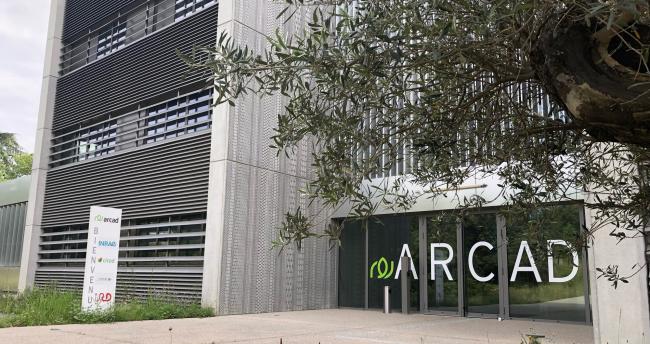Preserving and mobilizing agrobiodiversity to meet the major challenges facing agriculture

The first French "bank" for conservation of cultivated plants, ARCAD brings together nearly 50,000 samples (vine, maize, medick, sorghum, durum wheat, rice, millet, cotton, fonio, peanut etc.), in the form of seeds or cryobanks as well as analysis platforms and expertise to study diversity in its different components: biological, molecular, social etc.
Given the acceleration of ongoing global changes (environmental and socio-economic), studying, conserving and enhancing the diversity of cultivated plants and their wild relatives is becoming paramount. Some ancient varieties or wild populations, sometimes threatened with disappearance, may indeed be less sensitive to climate changes, emerging diseases or pests. They can also be used as parents of new varieties better adapted to these new contexts or to identify interesting genes or genotypes to combine in diversified covers.
Furthermore, cultivating a diversity of species and varieties guarantees resilience, especially for family farming which ensures over half of global agricultural production. It is a guarantee of food and nutritional security. Finally, conserving, studying, disseminating this diversity by articulating in a complementary way the different modes of conservation - in fields with farmers to centres like ARCAD - and by recognising the different processes and actors in diversity creation - farmers, researchers, breeders - are important orientations to ensure food and agroecological transitions on a global scale.
Contact
- Roland Cottin, operational manager RARe
- Joelle Ronfort, UMR AGAP
- Special issue RARe NOV’AE « FOCUS Le Centre ARCAD à Montpellier : conserver l’agrobiodiversité pour adapter les cultures aux changements climatiques et aux nouvelles pratiques agricoles »
- https://www.cirad.fr/espace-presse/communiques-de-presse/2021/inauguration-abiophen-arcad
- Reportage France 3 Occitanie Dimanche en politique « Climat comment l’agriculture peut-elle s’adapter ?»

